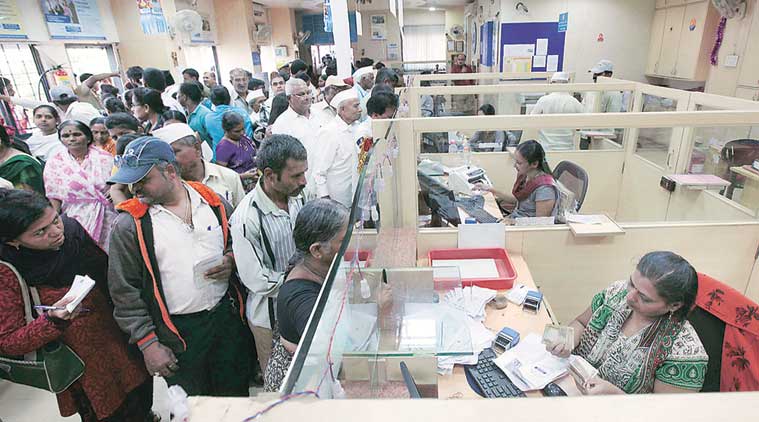Banking system liquidity turned deficit for the first time in the current fiscal on August 21 after the Reserve Bank of India’s (RBI) asked banks to maintain incremental cash reserve ratio (I-CRR), goods and services tax (GST) outflows and selling of dollars by the central bank.
The liquidity, as reflected by the amount of money injected by the RBI into the system, stood at Rs 23,644.43 crore on August 21, the latest RBI data showed. Since the beginning of FY2024, the RBI has been absorbing excess liquidity from the banking system.

“The liquidity has turned deficit because of various factors – the incremental CRR has taken out Rs 1.1 lakh crore of liquidity from August 12 onwards and there are tax payments which are due. The RBI has been selling dollars in the market, which has also contributed to taking out liquidity,” Bank of Baroda’s Chief Economist Madan Sabnavis said.
Earlier this month, the RBI mandated banks to maintain an I-CRR of 10 per cent on the increase in their net demand and time liabilities (NDTL) between May 19, 2023, and July 28, 2023, effective August 12. The temporary move was aimed at managing the liquidity overhang generated due to the return of Rs 2,000 banknotes to the banking system, RBI’s surplus transfer to the government, pick up in government spending and capital inflows.
RBI Governor Shaktikanta Das had said the I-CRR will absorb above Rs 1 lakh crore of excess liquidity from the banking system. The RBI said it will review the I-CRR on September 8, 2023, or earlier, ahead of the festival season.
Over the last few days, the RBI has been selling dollars to defend the rupee which has come under pressure due to the rise in the US bond yields and decline in the Chinese Yuan.
On August 17, the rupee fell to an all-time low of 83.15 against the dollar. On Tuesday, the local currency ended at 82.94.
“The RBI has been exceptionally active in the market to protect the rupee from breaching its record low level. In the last 7-8 days, the RBI would have sold $10 billion,” said a forex market trader.
The liquidity situation is expected to remain tight till the end of September as next month there will be advance tax outflows. The last date for payment of the second instalment of advance tax is September 15.
Emkay Global Financial Services’ Lead Economist Madhavi Arora said in the second half of the fiscal, there will be an increase in currency in circulation and a pick-up in industrial activity, which will tend to put pressure on liquidity conditions.
“Liquidity is going to remain tight in the system not to the extent that it remains in deficit but at least the call money rate should be hugging the call rate or higher than the policy repo rate,” she said.
Most Read 1Chandrayaan-3 mission: Dawn breaks on Moon, all eyes on lander, rover to wake up 2As Indo-Canadian relations sour, anxiety grips Indian students, residents who wish to settle in Canada 3Karan Johar says Sanjay Leela Bhansali did not call him after Rocky Aur Rani: ‘He’s never called me but…’ 4Gadar 2 box office collection day 40: Hit by Shah Rukh Khan’s Jawan onslaught, Sunny Deol movie ends BO run with Rs 45 lakh earning 5Shubh’s tour in India cancelled: Why is the Canada-based singer facing the music?
Banks may increase short-term deposit rates in case there is a shortage of funds, according to Sabnavis.
“It all depends on what is happening on the credit side. If there is demand for credit and funds are not, there could be an increase in deposit rates,” he said.
Also ReadHDFC Bank shares fall over 3% down as lender flags hit to key ratios post…FCNR bonds were 'least bad' option to raise dollars: Raghuram RajanRBI to banks: Give property papers back within 30 days of loan closureRBI to discontinue I-CRR in a phased manner from today
Banks can mobilise funds by increasing rates on retail deposits, bulk deposits or by issuing certificates of deposit (CDs), he said.
© The Indian Express (P) Ltd


